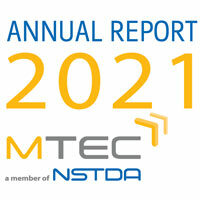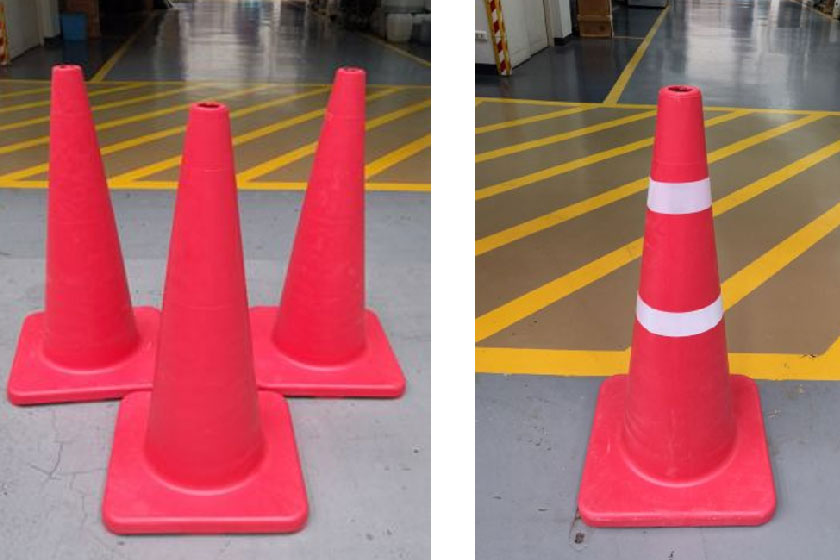Bio-Circular-Green Economy Model is Thailand’s new sustainable growth engine and national development agenda. Natural rubber (NR) or para rubber is a “green” material and one of the most important crops and products of Thailand. Thai government policy is issued to encourage more domestic usage of raw natural rubber, thus an increase in the production of rubber products by SMEs is expected. This move will increase the value of natural rubber, hence generating more profit, instead of exporting as the raw rubber (concentrated NR latex and rubber smoked sheets/blocks).
MTEC/NSTDA research team carried out the traffic cone production trial and property testing with Tanattorn Company Limited. Normally, traffic cones are made from petroleum-based thermoplastics such as poly(vinyl chloride). However, the company has decided to produce traffic cones that contain natural rubber, or EVA (ethylene-vinyl acetate) copolymer.

An industrial prototype of thermoplastic natural rubber (TPNR) traffic cone has been produced by a continuous process. The TPNR is a thermoplastic elastomer (TPE) obtained from mixing NR with various types of thermoplastics. An industrial-scale compounding and production technology of “Thermoplastic Natural Rubber Traffic Cones or TPNR traffic cones” has been transferred to Tanattorn Company Limited at the beginning of this year (2021) covering the production process of TPNR and all the materials and product testing required for TPNR traffic cones. This process is registered as a trade secret of NSTDA.
As mentioned earlier, thermoplastic natural rubber or TPNR can be obtained from mixing NR with various types of thermoplastics incorporating with the “dynamic vulcanization” by using twin screw extruder that can be called “Reactive Extrusion”. By using this process, TPNR can possess the rubber-like properties at the usage temperature while maintaining thermoplastic-like flowability and recyclability. This makes TPNR and all the TPEs fit well with the Circular Economy concept while TPNR also contains more advantages in line with Bio-and Green- Economy Model because it contains natural rubber.
Once the technology transfer process and testing in real-life application of TPNR traffic cones have been completed, the products are then commercialized. The advantages of TPNR traffic cones are an increase in tear resistance and an improved result in vertical impact test by dropping. Moreover, the process of removing TPNR traffic cones from an injection mold is faster, thus leading to an increase in productivity and a reduction in scrap. The most important advantage is that the product conforms to the BCG Economy Model, while, at the same time, NR is consumed domestically and transformed into useful product.
Research team
Dr. Pasaree Laokijcharoen and Thongsak Kaewprakob

